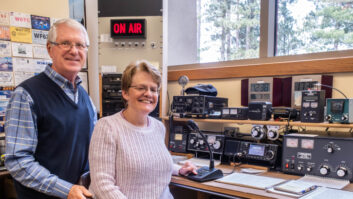LOS ANGELES � We�ve often discussed the job market outlook for those in our engineering community in the pages of Radio magazine. If you happen to work in a larger market, the outlook is good; for smaller markets, the outlook isn�t quite as rosy.

With the coming of 5G, how will the job market change for those who know something about RF? It�s hard to say for sure, of course, but arecent studypublished byctia.orgmakes for a very positive outlook, indeed. �CTIA is an international nonprofit membership organization that has represented the wireless communications industry since 1984. The association�s members include wireless carriers, device manufacturers, suppliers as well as apps and content companies,� according to their web page. So, you can take their positive spin about 5G with a grain of salt.
�For decades, the evolution of communications technology has laid the foundation for broad economic growth across the United States benefitting towns and cities large and small. The next generation of wireless network infrastructure will be built using small-cell networks employing 5G wireless technology,� according to the executive summary of the paper.
�The connectivity and computing capacity unleashed by these high-speed wireless networks will bring the power of Smart City solutions to municipalities across the country. This can transform local economies. Research has suggested that Smart City solutions applied to the management of vehicle traffic and electrical grids could produce $160 billion in benefits and savings through reductions in energy usage, traffic congestion and fuel costs. These 5G attributes will enable cities to reduce commute times, improve public safety and generate significant smart grid efficiencies.
�Beyond the benefits of pervasive Smart City technology, the potential gains from the deployment process for such technology are also significant since telecom operators are expected to invest approximately $275 billion in infrastructure, which could create up to 3 million jobs and boost GDP by $500 billion.�
�Communities of all sizes are likely to see jobs created. Small to medium-sized cities with a population of
30,000 to 100,000 could see 300 to 1,000 jobs created. In larger cities like Chicago, we could see as many as 90,000 jobs created.�
One would expect that skills in IP networking, perhaps in addition to (or maybe even instead of) RF would be valuable in this coming economic boom, as it is portrayed by CTIA.
You can read the entire paperhere.�
�












